We might not realize it, but we probably see neurodivergent people every day. According to the CDC, in 2022, 1 in 31 children have been diagnosed with autism. People on the spectrum are all around us, but, sadly, some neurotypicals have yet to accept that.
Like these in-laws, who demanded that the bride remove her autistic nephew from her wedding. After hearing the child squealing with excitement, the parents felt it was ruining their son’s (the groom’s) big day. In solidarity with her sister and nephew, the bride and groom both refused to entertain the bigoted in-laws’ Karen-isms.
A woman’s wedding was ruined by her in-laws complaining about her autistic nephew

Image credits: beautifulmomentstudio23/Envato (not the actual photo)
The parents threw a tantrum when the kid’s vocalizations “ruined” their son’s big day
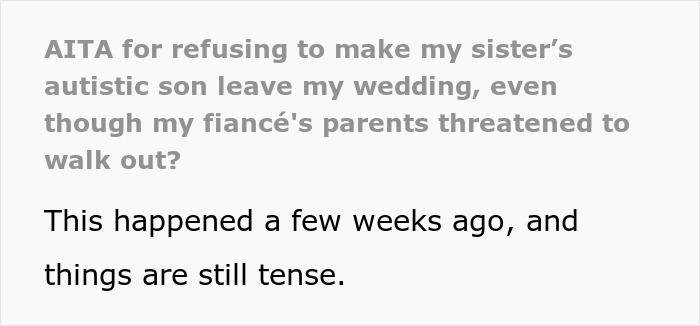
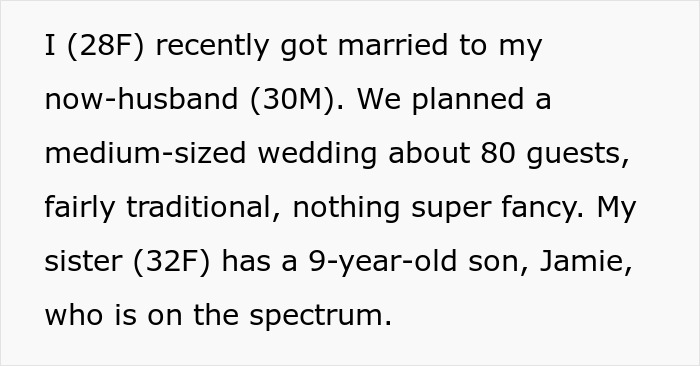
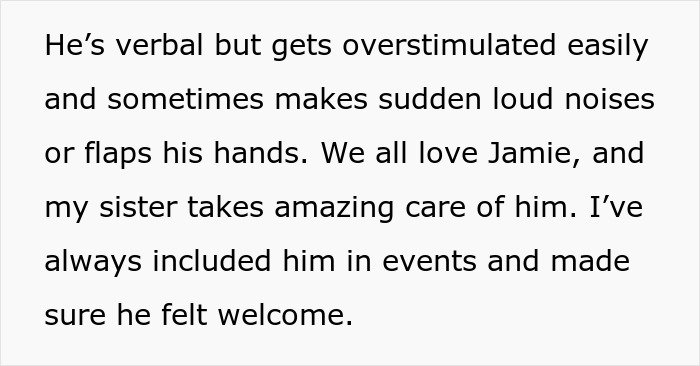
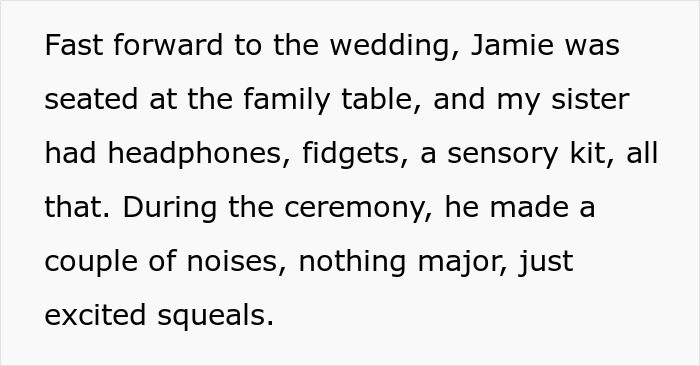
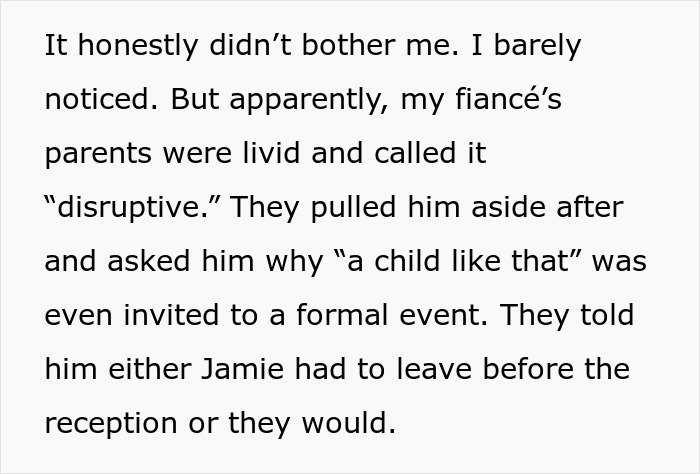
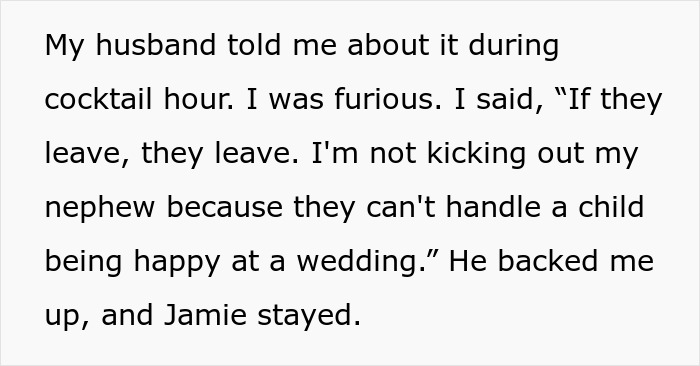
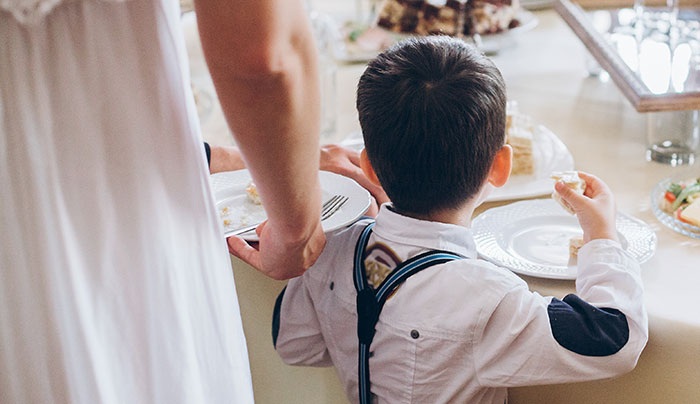
Image credits: Sonyachny/Envato (not the actual photo)
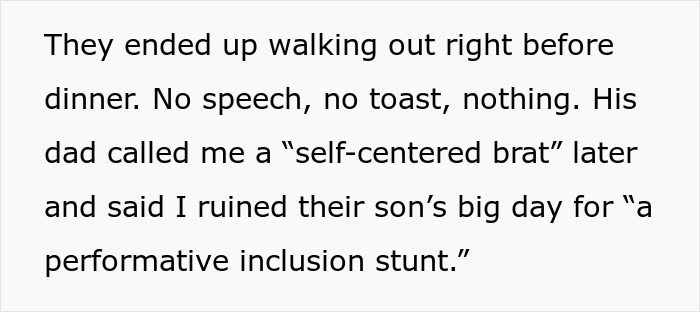
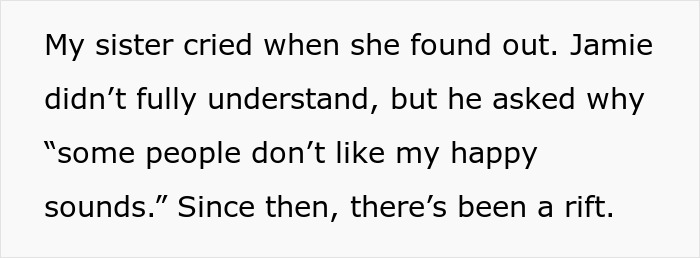
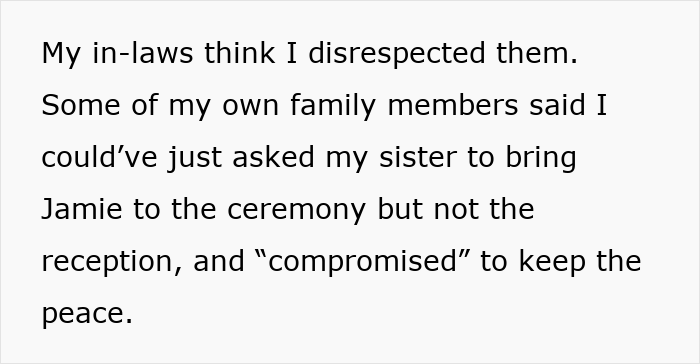
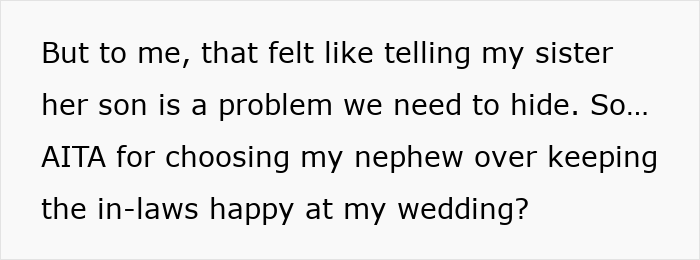
Image credits: smallman101
Discrimination against people on the spectrum happens because of a lack of exposure
There’s a pervasive myth that older people are less likely to tolerate things we had less awareness of back in the day. Neurodivergence and autism fall into that category, but older adults might be less prejudiced than we think.
Research shows that most adults still have a negative first-impression bias toward autistic people. Yet, only 16% of younger folks are actually more likely to say that neurodivergent people experience discrimination. In contrast, 24% of older adults in the U.S. say that individuals diagnosed with autism face a great deal of discrimination.
An autism diagnosis is not the only reason neurodivergent youth experience discrimination. Data from the 2021-2022 National Survey of Children’s Health show that autistic youth are more likely to experience gender-, racial-, ethnic-, and sexual orientation-based discrimination than neurotypical youth.
Experts say that one of the main reasons for this discrimination is a lack of exposure. Neurotypical people simply don’t see and interact enough with neurodivergent people. A 2020 study suggests that a higher level of contact with autistic people results in favorable attitudes toward them.
The authors of the study also propose that “increasing public knowledge of autistic people” should contribute to improving general attitudes toward them.
It’s good to provide autistic kids with a quiet sensory area just in case
Having wedding guests who are on the spectrum might pose more of a challenge for the planners, but it is ultimately worth it to make them feel welcome.
One of the most important things is to provide neurodivergent people with something else to do during the ceremony or reception, since they’re easily distracted or overwhelmed. Writer, podcaster, public speaker, and activist Heidi Mavir told Magpie Wedding that all children might get bored at a wedding, but that’s especially true for autistic children.
“Colouring packs are perfect and may be something to put together or build,” she suggests. “Get creative with your favours – ditch the sugared almonds and opt instead for a simple fidget toy. Non-autistic people love them too.”
While neurodivergent people can and should attend weddings just fine, it’s also always considerate to provide them a space away from the overwhelming lights and sounds. As an autistic adult, Mavir sympathizes: “I like a dance but then I need to be somewhere to have a little sit down away from noise and lights and lots of people too.”
Celebrant and event planner Rebecca Waldron from White Rose Ceremonies is also for providing a quiet sensory area for autistic kids during weddings. “Provide a quiet area that has cushions, blankets and things to do. Help them to feel safe,” she emphasizes.
“Many autistic children like to focus on an iPad or similar, so it would be a bonus if you have Wi-Fi available.”
In general, experts say that it depends on the individual neurodiverse person. Some might find it easier to be in the hustle and bustle of the party, others may need more quiet alone time. Either way, just because a person is autistic, that doesn’t mean they can’t attend family celebrations.
People sided with the bride: “I’m sorry your new parents-in-law are bigots”
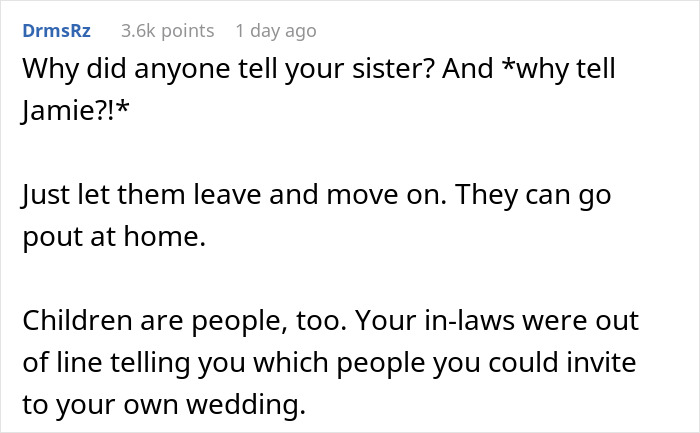

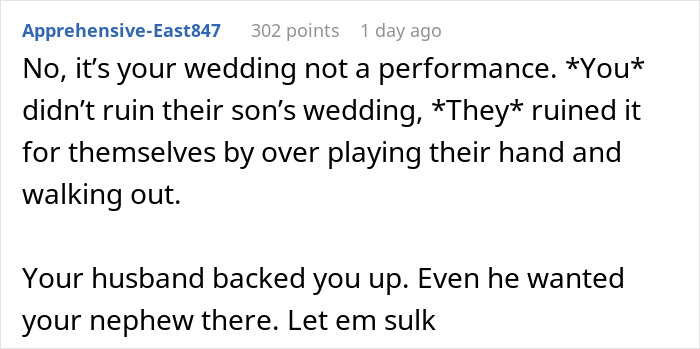

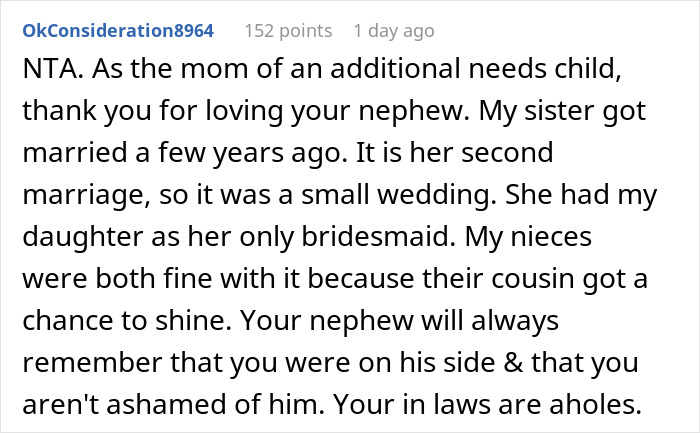

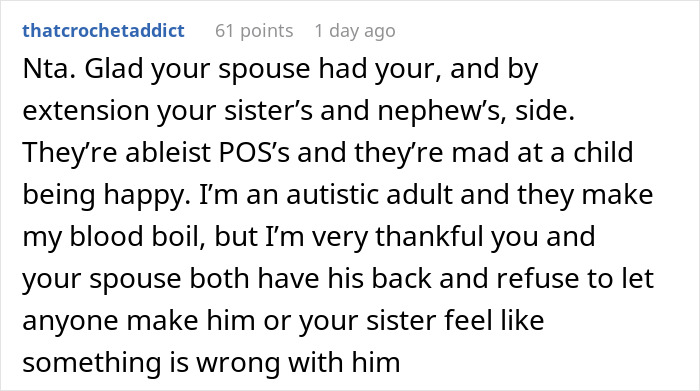
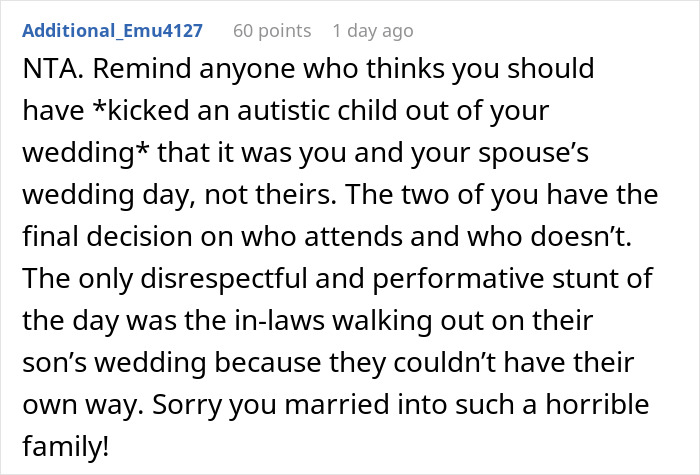

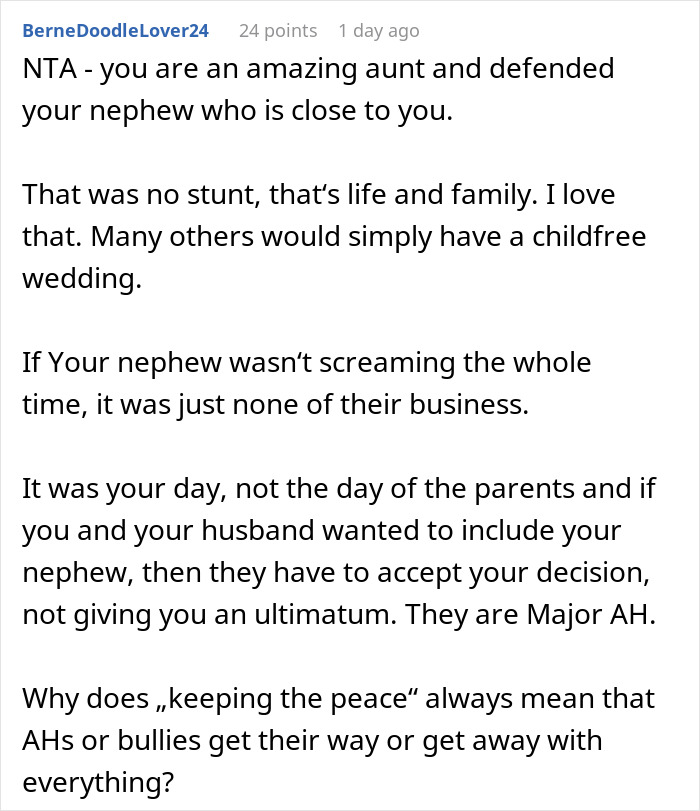

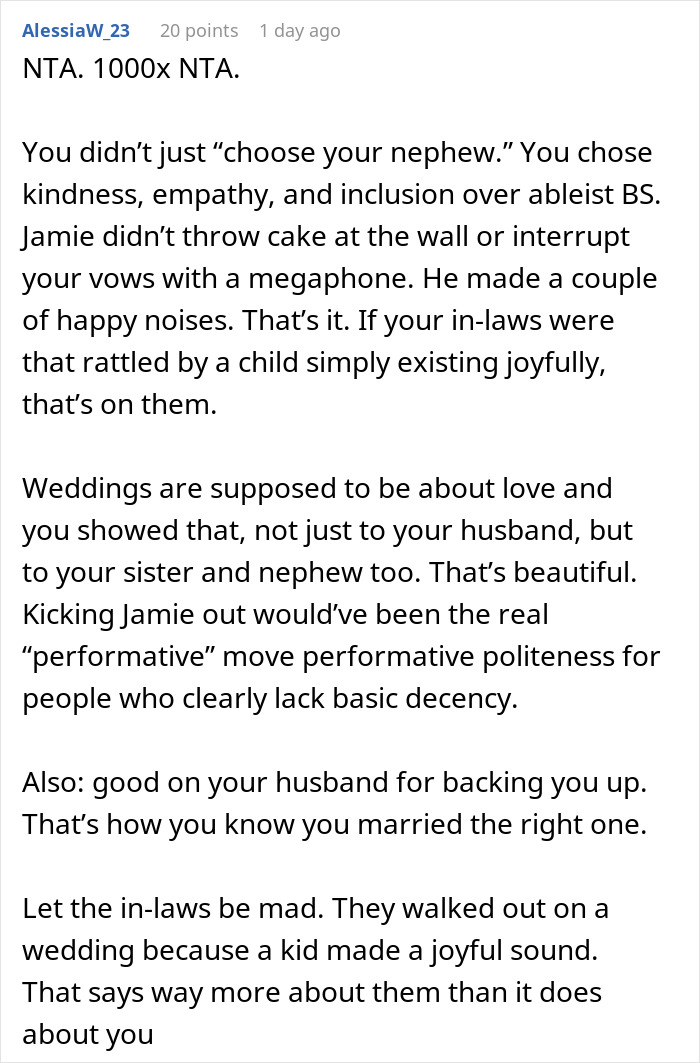
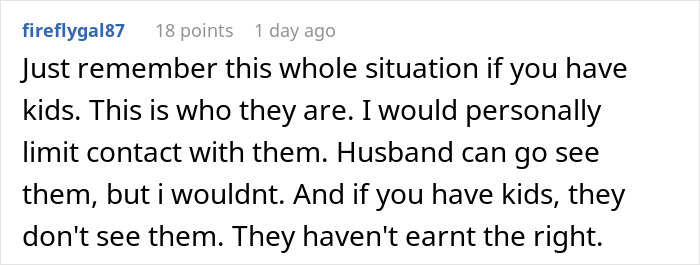
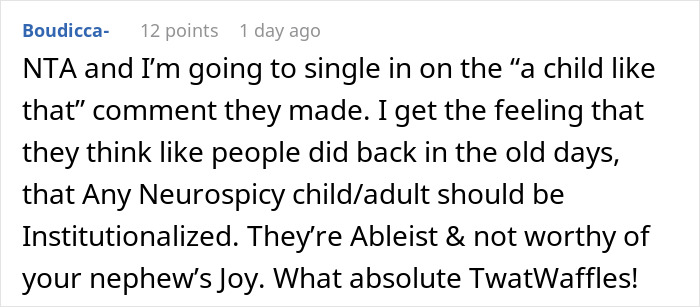

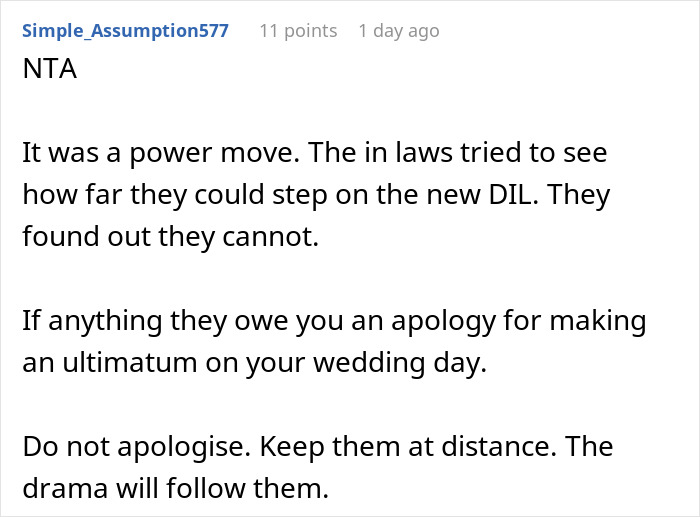
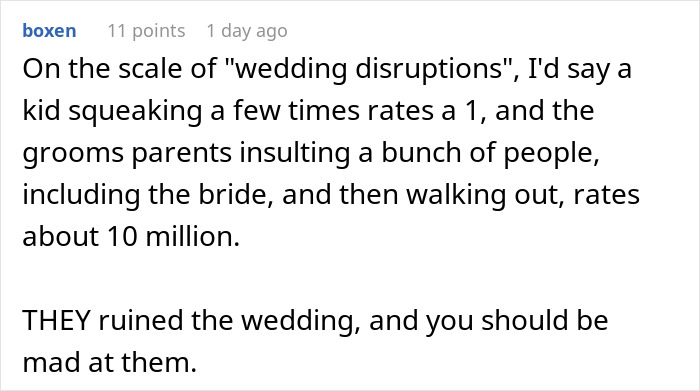


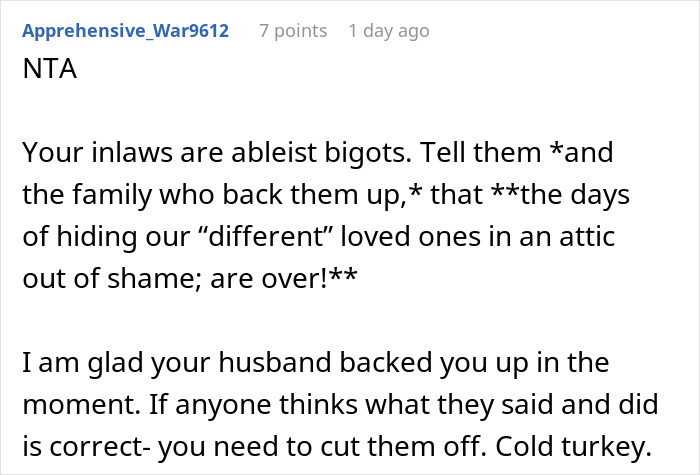
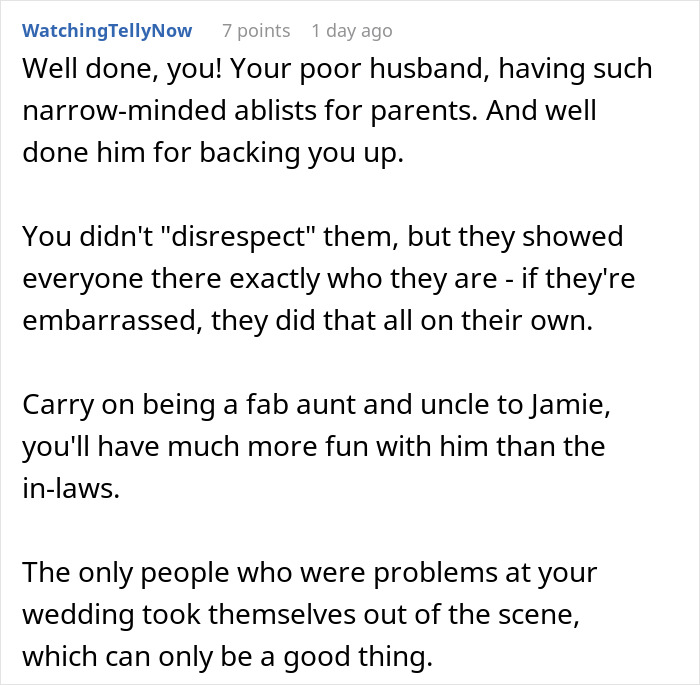
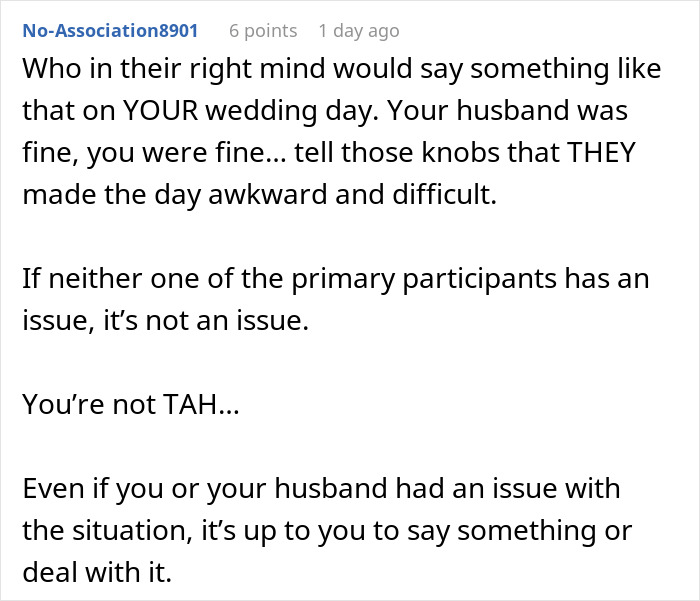





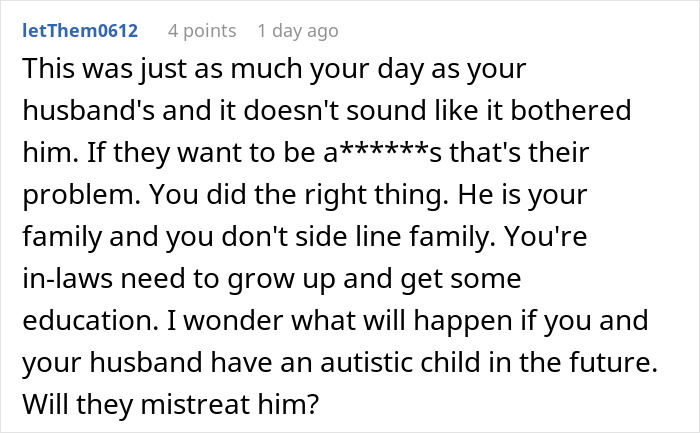
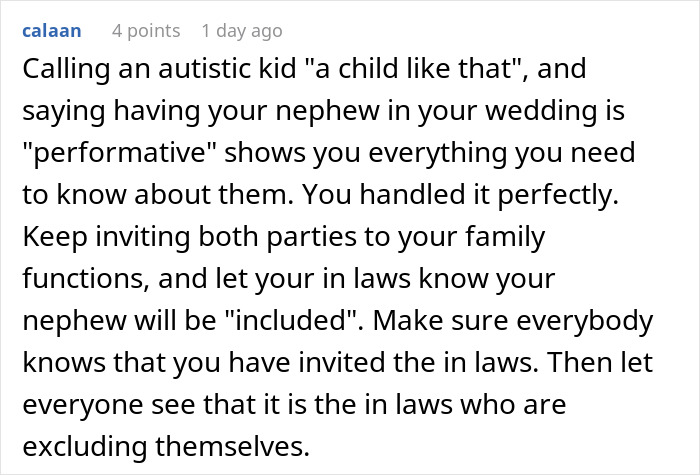
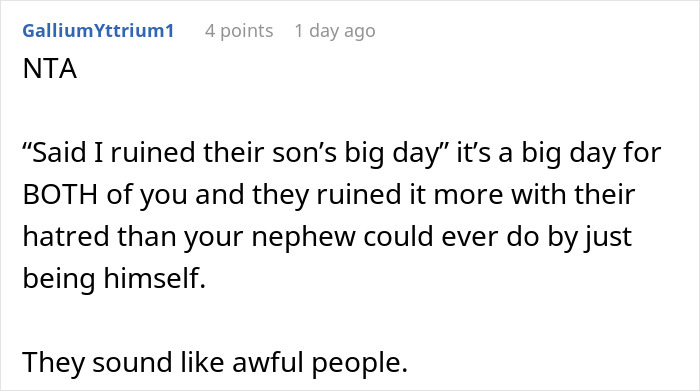

from Bored Panda https://ift.tt/vWTmYDd
via IFTTT source site : boredpanda